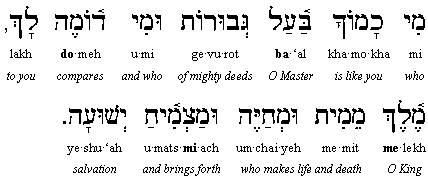 I was 26 years old in 1952 when I devoted several weeks to a close study of Hannah Arendt's "Origins of Totalitarianism," which had appeared the previous year. I was a college graduate by then (from the then-famed CCNY), but otherwise innocent of the world of scholarship. "Origins" made a tremendous impression on me, as it did on many others at the time. Nobody was aware of, or would have cared if aware, her strange love life as the mistress of Heidegger.
I was 26 years old in 1952 when I devoted several weeks to a close study of Hannah Arendt's "Origins of Totalitarianism," which had appeared the previous year. I was a college graduate by then (from the then-famed CCNY), but otherwise innocent of the world of scholarship. "Origins" made a tremendous impression on me, as it did on many others at the time. Nobody was aware of, or would have cared if aware, her strange love life as the mistress of Heidegger.First and perhaps foremost, "Origins" boldly proclaimed an equivalence between Stalin's Russia and Hitler's Germany. ( Since then specialists have pointed to the pitfalls in insisting on equivalence in history: two things are never exactly the same, and, it is now argued, the Soviet Union and Nazi Germany, while similar in many ways, were different in others.) To her great credit, Arendt went against the fashions of her time, a time when prevailing moods held the Soviet Union to be somehow on the Left and the Nazis on the Right. Of course, Arendt was neither the first nor the most incisive of the writers who insisted on the striking similarities between Soviet and Nazi domination.
The other noteworthy feature of Arendt's book, it struck me then and still strikes me now, was her observation that neither of the totalitarian movements could be explained by the self-interest of its supporters. The Marxist "materialist" explanations needed to be exposed. She was foremost in describing these movements as irrational and, in that sense, selfless. (Recent research, of course, has shown both self-interest and selfless "idealism" in these movements.)
Beyond these enduring aperçus, the book was full of what seemed to me erudite references to historical events and movements. Huge sections of the book were devoted to British and French history, and, I was led to believe, all this detail showed how profoundly educated the writer was, how deep a thinker. Now, more than half a century of commentaries by specialists, it is obvious to one and all that much if not all of Arendt's book place her into that category of know-all writers who start with having an idea (sometimes quite a good one) and then dress it up with whatever footnote references they can find to prove this idea. She had strong opinions, many of them valuable, but she had neither the inclination nor the scholarly habits to test these opinions.
A year or two after I studied her book, I enrolled in a graduate seminar with her at the New School. I thought then, and I think now, that she was the most arrogant person I ever met in my life, or at least tied for that position. She insisted that every one of her thoughts, no matter how fleeting or obviously ridiculous, be accepted as truth beyond any doubt.
Eleven years ago now, Walter Laqueur, in an indispensable article "The Arendt Cult: Hannah Arendt as Political Commentator," shows many instances of a petulant narcissism in her personal and professional life, and also demonstrates the irrationality of the admiration that her writings have inspired since her death. He also shows how prone she was to anti-Jewish prejudices (being Jewish herself was no inhibition).
So what is new ? Plenty. The Times Literary Supplement of October 9, 2009, carries a lengthy article entitled "Blame the victim. Hannah Arendt among the Nazis: the historian and her sources," by the distinguished historian Bernard Wasserstein (I have not been able to find an on-line version of this piece.) Much of Laqueur's older criticism is amplified here, with much new detail of Arendt's personal anti-Semitism, her haughty relations with others, the unscholarly nature of her "Origins of Totalitarianism:"
Her conception of the dynamics of historical change was confused, a mishmash of the structural, the social-psychological, and the conspiratorial. She was painfully ignorant of political economy, diplomacy, and military strategy and had little grasp or interest in the mechanics of the political process in the states about which she wrote. She snapped up unconsidered trifles of evidence and inflated them into richly coloured balloons of generalization.But Wasserstein's most telling criticism comes when he details Arendt's ignorant use of anti-Semitic sources to reach her generalizations about the nature of the Jews. Sometimes she relies on such sources just carelessly, but more often she seems malicious. We all know, of course, that some years after writing her "Origins," Arendt repeatedly insisted that groups of Jews, particularly those incarcerated by the Nazis, collaborated with Nazis in ways that, presumably, she herself never would. She didn't much like Jews, and she didn't seem to care that her personal tastes and prejudices, and not only about Jews, ruined her objectivity as a writer.
UPDATE, March 13, 2010: read "Where Hannah Arendt Went Wrong," by the distinguished Israeli scholar Shlomo Avineri, in Haaretz Books of March 2010.
UPDATE, Nov. 11, 2013: read Gertrude Ezorsky's "Hannah Arendt Against the Facts." (1963), and Michael Ezra's "The Eichmann Polemics: Hannah Arendt and Her Critics" (2007).


